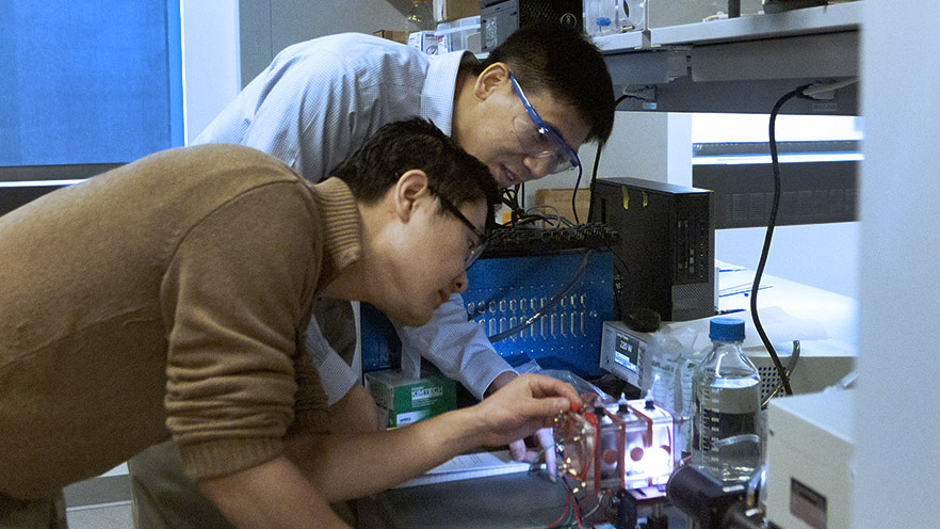Princeton team make hydrogen from wastewater
Researchers have harnessed sunlight to isolate hydrogen from industrial wastewater, an advance that could lead to a less energy intensive and cheaper method of producing pure hydrogen.

In a paper in Energy & Environmental Science, the researchers at Princeton University reported that their process doubled the currently accepted rate for scalable technologies that produce hydrogen by splitting water.
The technique is said to use a specially designed chamber with a black silicon interface to split water and isolate hydrogen gas. The process is aided by bacteria that generate electrical current when consuming organic matter in the wastewater; the current, in turn, aids the water splitting process.
The team, led by Zhiyong Jason Ren, professor of civil and environmental engineering and the Andlinger Center for Energy and the Environment at Princeton, chose wastewater from breweries for the test. They ran the wastewater through the chamber, used a lamp to simulate sunlight, and watched the organic compounds breakdown and the hydrogen bubble up.
Register now to continue reading
Thanks for visiting The Engineer. You’ve now reached your monthly limit of news stories. Register for free to unlock unlimited access to all of our news coverage, as well as premium content including opinion, in-depth features and special reports.
Benefits of registering
-
In-depth insights and coverage of key emerging trends
-
Unrestricted access to special reports throughout the year
-
Daily technology news delivered straight to your inbox










UK car production falls in April
Might the ´combination of factors´ include, in the face of stagnant EV sales, manufacturers reducing ICE car production in order to avoid the £15,000...